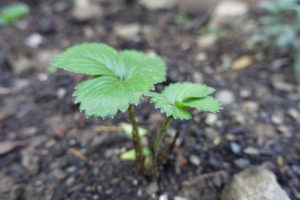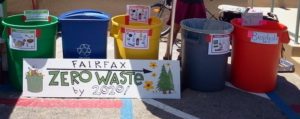It’s bare-root season! Plant-bare root fruit trees, roses, berry vines, etc. Some nurseries will prune the tree for you before you take it home.
Start vegetables indoors: Broccoli, cabbage (early varieties), cauliflower, celery, kale, Romaine lettuce, peas, artichoke, chard, leeks, rhubarb, spinach.
Garden upkeep: Prune fruit trees and roses, Cover frost-tender plants (Leave plants already damaged by frost alone. Prune blackened branches and leaves in April, when the true damage will be more apparent).
Take your living Christmas tree back outside If you plan on planting it in the ground, remember that most of them get very large. If your tree is going in the compost, Marin Sanitary Service is picking trees up at the curb through the month of January.
It is a great time to sheet mulch weedy areas or lawn that you want to convert to drought tolerant plantings. Find out more about sheet mulching here.

